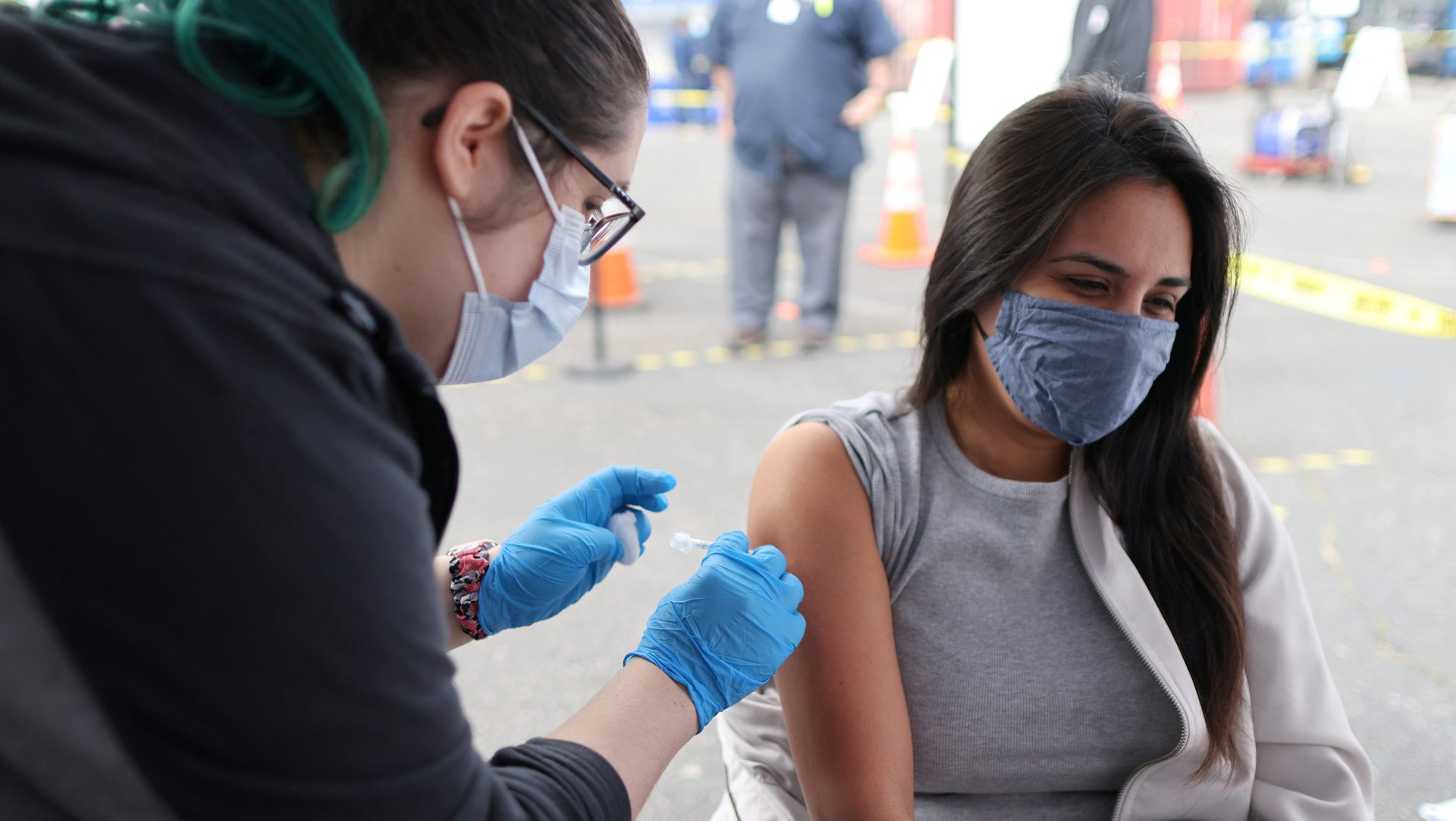US employees broadly support mandatory Covid-19 vaccinations
The day is fast-approaching when US companies, if they haven’t already, will have to decide whether to insist that employees get vaccinated before they return to a physical workplace.


The day is fast-approaching when US companies, if they haven’t already, will have to decide whether to insist that employees get vaccinated before they return to a physical workplace.
To do so could invite legal challenges since the vaccine is still only authorized for emergency use. But not doing so could court a backlash from employees who are concerned about their exposure. Are employers damned if they do, damned if they don’t?
A new survey by Qualtrics sheds some light on the issue. The employee experience analytics company sent a questionnaire to more than 1,000 working adults in the US asking for their opinions on vaccine rules set by employers.
It found the majority (66%) would support their current employer if the company required all workers to get the jab. Men were more in favor of making vaccination a must, with 71% signaling approval compared to 61% of women.
People who worked in finance and tech were the strongest supporters of vaccine mandates, with more than 80% of employees in both categories indicating they would appreciate that approach.
However, 19% of respondents not only wouldn’t get behind that decision, they would also “strongly consider leaving their current job” if getting the Covid-19 vaccine was required. This finding jibes with recent surveys by Pew Research showing that about 69% of Americans now intend to get vaccinated, compared to 60% who said the same thing in November, while nearly one in three still say they probably or definitely won’t.
Qualtrics also found that people who once toiled in an office but became remote workers during the year were more likely to be in favor of compulsory vaccines: 71% of those respondents liked that idea, compared to 55% of people who worked on-site throughout the pandemic.
How do employees feel about working without mandated vaccines?
And what might happen if an employer doesn’t make vaccines mandatory and merely encourages compliance instead? Roughly one in four employees said they wouldn’t feel safe in that case, while 57% said they’d feel comfortable that way.
Once again, people who have been working remotely this past year showed more signs of cautiousness: Although 65% of people working on-site this past year said they’d be fine going back without any vaccine rule in place, only 51% of those who had become remote workers because of the pandemic said the same thing.
“Tech workers are much more likely to strongly consider leaving their jobs if vaccines are not required: 26% say they would strongly consider leaving, and another 26% say they would somewhat consider leaving,” Qualtrics reports.
Asked what measures would help them feel more protected from the risk of exposure, the top two responses from all respondents were requiring employees to wear masks, a necessity for 66% of those surveyed, and social distancing, which 61% deemed essential.
The question people should be asking: How can I protect others?
The survey also found that mandates or not, less than half of working Americans (45%) said they’d want to be vaccinated before they go back to work, a figure that’s disappointing considering the advice Joseph Allen, assistant professor at Harvard University’s T.H. Chan School of Public Health, offered last year about the mindset everyone should adopt before migrating back to their office towers: Ask yourself how you can best protect the people around you, he suggested. If everyone does the same thing, the whole company will be protected by that collective compassion.
Despite the good news about the efficacy of current vaccines, there are still too many unanswered questions about Covid-19 for people to behave as if they are not a threat to others, especially when you don’t know who is vaccinated and who isn’t. And right now, it appears that being vaccinated—and not only wearing a mask and social distancing—will reduce the risk of transmission (though there’s still some debate about this), while mass vaccinations will also make it less likely that more mutations will develop.